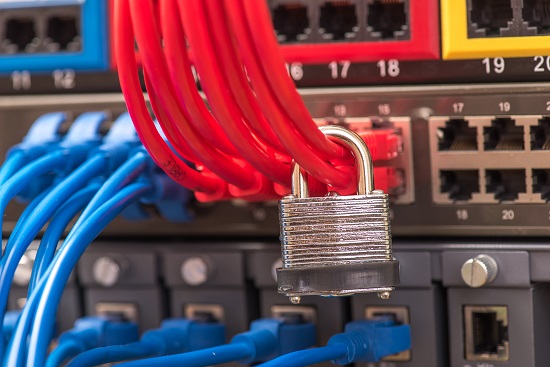
Managed firewalls can be used to provide protection in depth and visibility by blocking malicious traffic and allowing organizations to block large amounts of it before they reach the network perimeter. We will discuss the reasons why an intelligent, modern firewall is the very best line of cybersecurity layer or defense against various kinds of cyberattacks.
Managed Firewalls : Stopping Inbound Threats
Even though firewall network security could be placed at different locations inside a corporate network, the excellent spot to place the is the network perimeter. A firewall that is placed within the network perimeter will create as well as enforce a boundary between the public internet as well as the internal network protected and safe.
The network firewall could also make the most out of the fact all kinds of traffic coming in and out of the corporate network flows through one point of connection to the public Internet. This location allows for complete visibility of data flows across the network boundary by placing a firewall.
Proactive protection against cyber threats is also possible with a perimeter-based firewall. Next-generation firewalls with threat prevention capabilities can detect and block attempted attacks before they reach the corporate network. This significantly reduces the cyber risk that these attacks could cause for the company and its employees.
Protecting the Depths of Defense
Firewalls can be used to provide protection in depth for threats that cross the network boundary. An organization can use network firewalls to segregate the network to gain greater visibility into its internal traffic and make it harder for malicious insiders or attackers to move laterally within the organization’s network.
A next-generation firewall installed within a corporate network is not only capable of protecting against core threats but also benefits from identity-based inspection and application control. Application control allows a firewall to identify which application is causing a flow of network traffic. This allows the firewall enforce application-specific security policies which reduce risk associated with insecure apps and allow the organization to block unauthorized programs from their network.
An identity-based inspection adds context to an analysis of network flows. A firewall can identify the user who is performing a specific action and enforce access controls based on employee job roles or permissions. It is crucial to have visibility over the actions of these accounts as 74% of data breaches are caused by abuse of them.
 Meeting Unique Security Needs
Meeting Unique Security Needs
The next-generation firewalls, aside from IT services Fayetteville NC, can also be used to secure an organization’s entire network infrastructure. Corporate networks evolve and include a variety of endpoints. These can include traditional workstations and servers as well as mobile devices and cloud-based infrastructure and Internet of Things devices. It can be very difficult to secure a heterogeneous network that is growing quickly.
Because it protects all devices at an organization’s network level, a firewall is able to do so. Unified Security Management (USM) is a new-generation firewall that integrates all security data within one console. As a result of the current shortage in cybersecurity skills, many organizations are having difficulty finding enough talent to staff their security departments.
A next-generation firewall can also be deployed as a virtual appliance in the cloud. This allows you to provide cloud support, which allows you to secure multi-cloud hybrid cloud environments. This allows organizations to deploy IT support Fayetteville NC wherever they are needed, and take advantage of the flexibility of cloud-based infrastructure. Cloud firewalls are able to grow with the organization’s security needs, unlike hardware-based security appliances that require additional hardware to scale.
Security Individualized
Different sizes of companies have different security needs. While traditional firewalls were “one-size fits all” in the past. Modern firewalls can be tailored to meet specific cybersecurity requirements.
Organizations that operate critical infrastructure and industrial facilities face different threats. They also have different operating environments. Choosing an industrial firewall capable of operating in extreme environments will ensure that cybersecurity is not compromised.
A strong first line of defense
It can be hard to choose a firewall because there are so many options and not all firewalls are the same. Firewalls can be small gateways or large-scale network security solutions. There are many differences between traditional firewalls as well as next-generation firewalls. Understanding these differences and their importance is an important step in the procurement process.
A next-generation firewall must possess a few core capabilities to adequately protect your network from modern cyber threats. This guide will help you to choose the right firewall for your company and provide the required level of network security. To learn more about how a firewall can help improve your organization’s cyber defenses, you can request a demo and contact us.
Call SpartanTec, Inc. now if you are interested in having managed firewalls to improve the cybersecurity of your business.
SpartanTec, Inc.
Fayetteville, NC 28304
(910) 745-7776
http://manageditservicesfayetteville.com
Serving: Myrtle Beach, North Myrtle Beach, Columbia, Wilmington, Fayetteville, Florence, Charleston

No comments:
Post a Comment
Note: Only a member of this blog may post a comment.